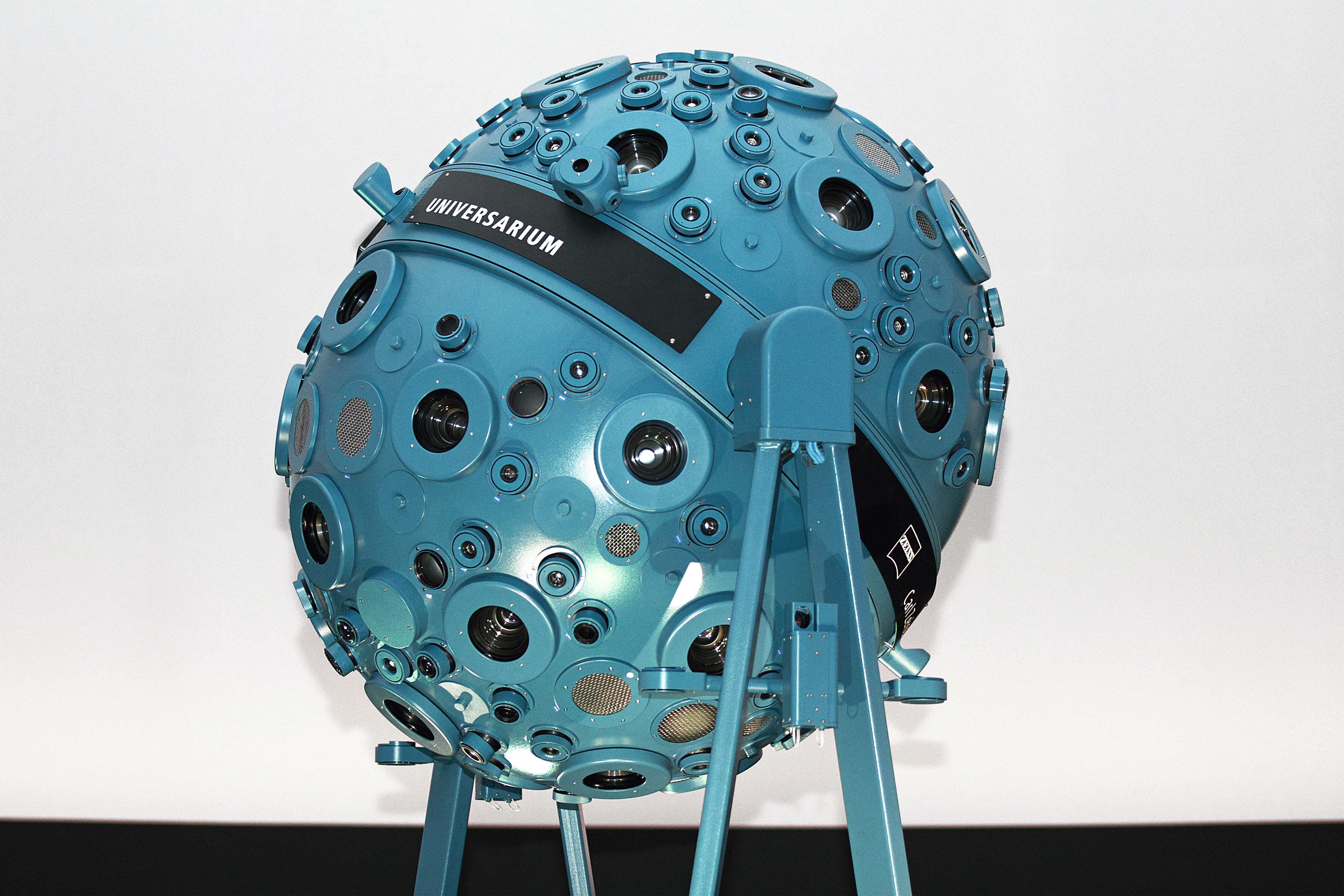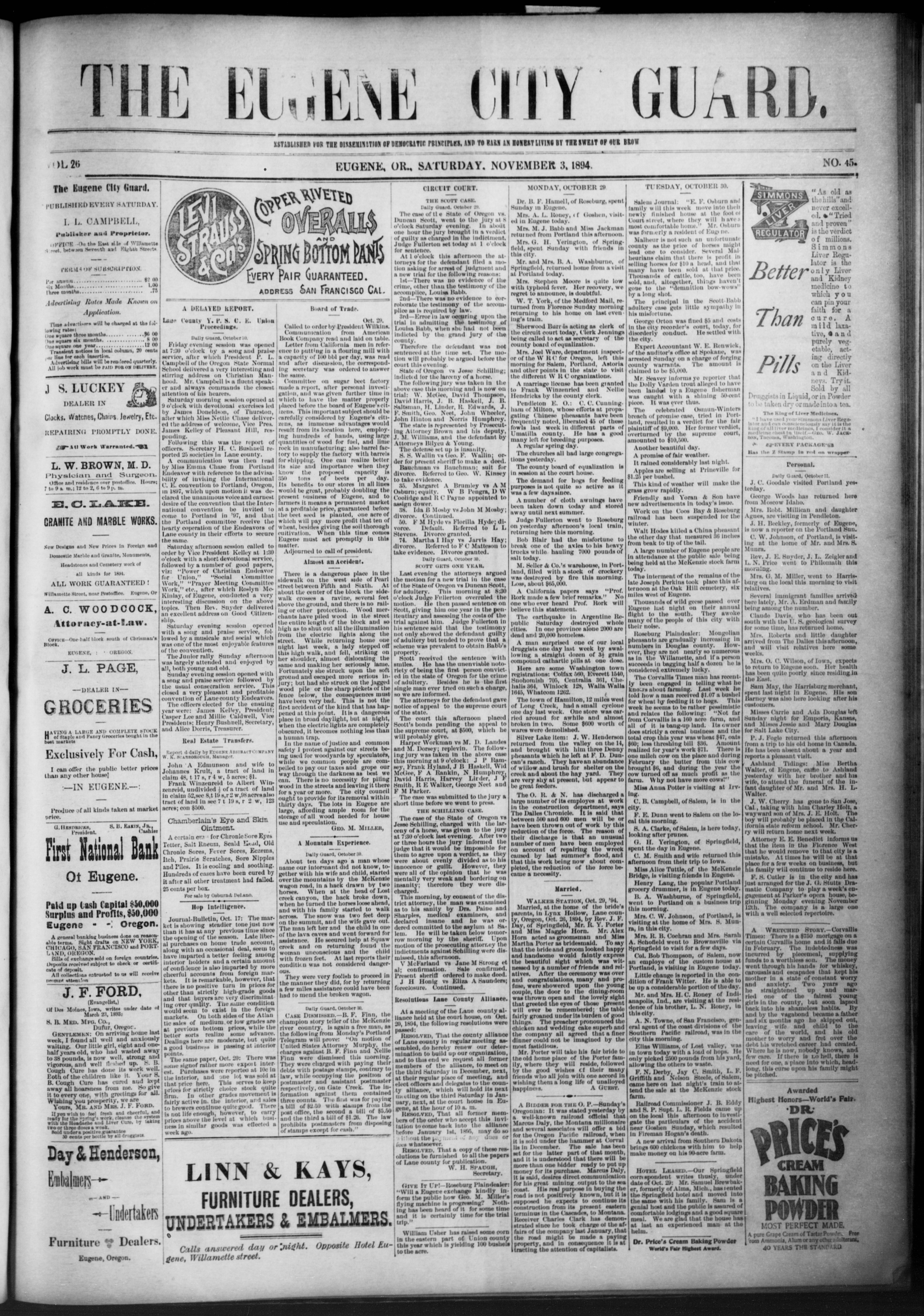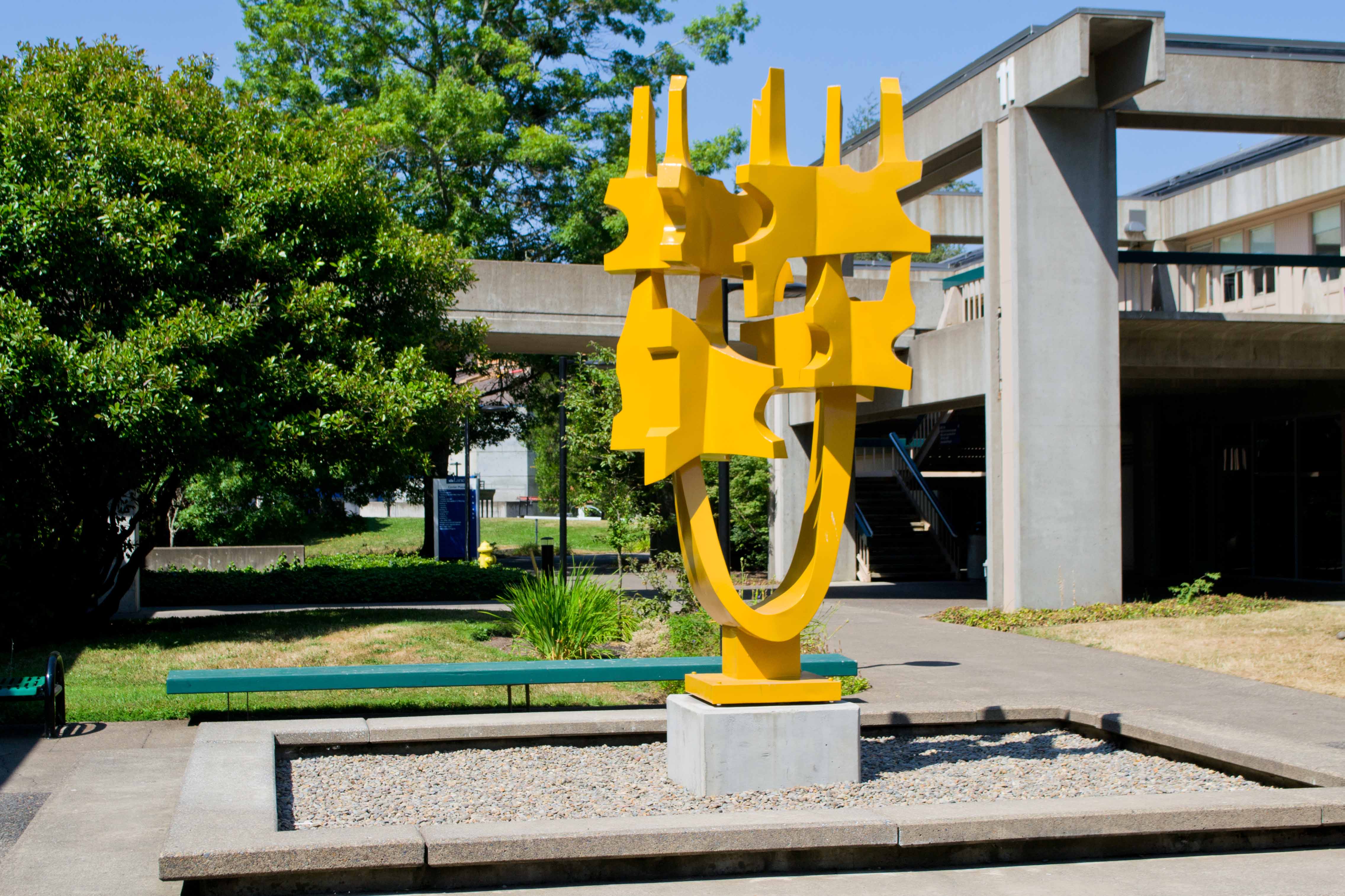|
Eugene Science Center
The Eugene Science Center, located in Alton Baker Park in Eugene, Oregon, United States, is a science and technology center for children, families, and school groups. The museum near Autzen Stadium features changing interactive exhibits, planetarium shows, camp programs, special events and other science and technology-related education programs. Eugene Science Center is an independent 501(c)(3) non-profit organization governed by a volunteer board of directors. Its mission is: "To engage children, excite their curiosity, inspire them toward a lifetime love of science, and empower them to use science and technology to improve their communities." Eugene Science Center is the only science museum in Lane County and surrounding counties. History Eugene Science Center was founded in 1961 as the Southwest Oregon Museum of Science and Industry (SWOMSI). SWOMSI received initial support from its parent organization, Oregon Museum of Science and Industry (OMSI) of Portland, but soon a ... [...More Info...] [...Related Items...] OR: [Wikipedia] [Google] [Baidu] |
Eugene, Oregon
Eugene ( ) is a city in the U.S. state of Oregon. It is located at the southern end of the Willamette Valley, near the confluence of the McKenzie and Willamette rivers, about east of the Oregon Coast. As of the 2020 United States Census, Eugene had a population of 176,654 and covers city area of 44.21 sq mi (114.50 sq km). Eugene is the seat of Lane County and the state's second largest city after Portland. The Eugene-Springfield metropolitan statistical area is the 146th largest in the United States and the third largest in the state, behind those of Portland and Salem. In 2022, Eugene's population was estimated to have reached 179,887. Eugene is home to the University of Oregon, Bushnell University, and Lane Community College. The city is noted for its natural environment, recreational opportunities (especially bicycling, running/jogging, rafting, and kayaking), and focus on the arts, along with its history of civil unrest, protests, and green activism. Eugene's offi ... [...More Info...] [...Related Items...] OR: [Wikipedia] [Google] [Baidu] |
Economic Development Administration
The U.S. Economic Development Administration (EDA) is an agency in the United States Department of Commerce that provides grants and technical assistance to economically distressed communities in order to generate new employment, help retain existing jobs and stimulate industrial and commercial growth through a variety of investment programs. History In 1965, Congress passed the Public Works and Economic Development Act of 1965 (PWEDA) (42 U.S.C. § 3121), which authorized the creation of the Economic Development Administration (EDA) to generate jobs, help retain existing jobs, and stimulate industrial and commercial growth in economically troubled areas of the United States. EDA assistance is available to rural and urban areas of the United States experiencing high unemployment, low income, or other severe economic distress. Mission and investment priorities The EDA's stated mission is to "lead the federal economic development agenda by promoting innovation and competitiveness, p ... [...More Info...] [...Related Items...] OR: [Wikipedia] [Google] [Baidu] |
Museums Established In 1961
A museum ( ; plural museums or, rarely, musea) is a building or institution that cares for and displays a collection of artifacts and other objects of artistic, cultural, historical, or scientific importance. Many public museums make these items available for public viewing through exhibits that may be permanent or temporary. The largest museums are located in major cities throughout the world, while thousands of local museums exist in smaller cities, towns, and rural areas. Museums have varying aims, ranging from the conservation and documentation of their collection, serving researchers and specialists, to catering to the general public. The goal of serving researchers is not only scientific, but intended to serve the general public. There are many types of museums, including art museums, natural history museums, science museums, war museums, and children's museums. According to the International Council of Museums (ICOM), there are more than 55,000 museums in 202 coun ... [...More Info...] [...Related Items...] OR: [Wikipedia] [Google] [Baidu] |
Science Museums In Oregon
Science is a systematic endeavor that builds and organizes knowledge in the form of testable explanations and predictions about the universe. Science may be as old as the human species, and some of the earliest archeological evidence for scientific reasoning is tens of thousands of years old. The earliest written records in the history of science come from Ancient Egypt and Mesopotamia in around 3000 to 1200 BCE. Their contributions to mathematics, astronomy, and medicine entered and shaped Greek natural philosophy of classical antiquity, whereby formal attempts were made to provide explanations of events in the physical world based on natural causes. After the fall of the Western Roman Empire, knowledge of Greek conceptions of the world deteriorated in Western Europe during the early centuries (400 to 1000 CE) of the Middle Ages, but was preserved in the Muslim world during the Islamic Golden Age and later by the efforts of Byzantine Greek scholars who brought Greek man ... [...More Info...] [...Related Items...] OR: [Wikipedia] [Google] [Baidu] |
Children's Museums In Oregon
A child ( : children) is a human being between the stages of birth and puberty, or between the developmental period of infancy and puberty. The legal definition of ''child'' generally refers to a minor, otherwise known as a person younger than the age of majority. Children generally have fewer rights and responsibilities than adults. They are classed as unable to make serious decisions. ''Child'' may also describe a relationship with a parent (such as sons and daughters of any age) or, metaphorically, an authority figure, or signify group membership in a clan, tribe, or religion; it can also signify being strongly affected by a specific time, place, or circumstance, as in "a child of nature" or "a child of the Sixties." Biological, legal and social definitions In the biological sciences, a child is usually defined as a person between birth and puberty, or between the developmental period of infancy and puberty. Legally, the term ''child'' may refer to anyone below the a ... [...More Info...] [...Related Items...] OR: [Wikipedia] [Google] [Baidu] |
The Daily Barometer
''The Daily Barometer'' is an independent campus newspaper of Oregon State University, in Corvallis, Oregon. It is published weekly during the fall, winter, and spring quarters, and monthly during the summer. Also known as The Baro, the news team covers local news and events and brings awareness to important student issues. Students serve as editors, reporters, and photographers to cover news through the newspaper, website, social media, and online videos. History In 1896, the College Barometer was founded as a monthly magazine for literature. The format changed to a weekly paper in 1906, a semi-weekly in 1909 and in 1922 became a daily paper, publishing five times per week. In 2016, The Daily Barometer began printing weekly as The Baro, with daily news content delivered via videos and online content.Chronological history of Oregon State University - 1890 to 1899'' accessed October 21, 2007 Notable alumni * David Gilkey - photojournalist * Lindsay Schnell - USA Today reporter ... [...More Info...] [...Related Items...] OR: [Wikipedia] [Google] [Baidu] |
Planetarium Projector
A planetarium projector, also known as a star projector, is a device used to project images of celestial objects onto the dome in a planetarium. Modern planetarium projectors were first designed and built by the Carl Zeiss Jena company in Germany between 1923 and 1925, and have since grown more complex. Smaller projectors include a set of fixed stars, Sun, Moon, and planets, and various nebulae. Larger machines also include comets and a far greater selection of stars. Additional projectors can be added to show twilight around the outside of the screen (complete with city or country scenes) as well as the Milky Way. Still others add coordinate lines and constellations, photographic slides, laser displays, and other images. The OMNIMAX movie system (now known as IMAX Dome) was originally designed to operate on planetarium screens. Companies that make (or have made) planetarium projectors include Carl Zeiss Jena (Germany), Spitz (US), Goto and Minolta (Japan), Evans & Sutherland ... [...More Info...] [...Related Items...] OR: [Wikipedia] [Google] [Baidu] |
The Register Guard
''The Register-Guard'' is a daily newspaper in the northwestern United States, published in Eugene, Oregon. It was formed in a 1930 merger of two Eugene papers, the ''Eugene Daily Guard'' and the ''Morning Register''. The paper serves the Eugene-Springfield area, as well as the Oregon Coast, Umpqua River valley, and surrounding areas. As of 2016, it has a circulation of around 43,000 Monday through Friday, around 47,000 on Saturday, and a little under 50,000 on Sunday. The newspaper has been owned by The Gannett Company since Gannett's 2019 merger with GateHouse Media. It had been sold to GateHouse in 2018. From 1927 to 2018, it was owned by the Baker family of Eugene, and members of the family served as both editor and publisher for nearly all of that time period. It is Oregon's second-largest daily newspaper and, until its 2018 sale to GateHouse, was one of the few medium-sized family newspapers left in the United States. History of ''The Guard'' Establishment ''The Guard'' ... [...More Info...] [...Related Items...] OR: [Wikipedia] [Google] [Baidu] |
University Of Oregon
The University of Oregon (UO, U of O or Oregon) is a public research university in Eugene, Oregon. Founded in 1876, the institution is well known for its strong ties to the sports apparel and marketing firm Nike, Inc, and its co-founder, billionaire Phil Knight. UO is also known for serving as the filming location for the 1978 cult classic ''National Lampoon's Animal House''. UO's 295-acre campus is situated along the Willamette River. The school also has a satellite campus in Portland; a marine station, called the Oregon Institute of Marine Biology, in Charleston; and an observatory, called Pine Mountain Observatory, in Central Oregon. UO's colors are green and yellow. The University of Oregon is organized into nine colleges and schools: the College of Arts and Sciences, Charles H. Lundquist College of Business, College of Design, College of Education, Robert D. Clark Honors College, School of Journalism and Communication; School of Law; School of Music and Dance; and the Gra ... [...More Info...] [...Related Items...] OR: [Wikipedia] [Google] [Baidu] |
Lane Education Service District
Lane Education Service District (Lane ESD) is an education service district that provides services to the 16 school districts in Lane County, Oregon, United States. Its headquarters are at 1200 Highway 99N in Eugene. Administration Lane ESD's superintendent is Tony Scurto. An assistant superintendent, three service area directors and an executive assistant provide support. Lane ESD is governed by a citizen-elected Board of Directors and an appointed advisor representing employment training. Five of the Board positions represent geographical zones and two are designated at-large. All members serve four-year terms. Districts Lane ESD operates across the 16 school districts in Lane County: * Bethel School District * Blachly School District * Creswell School District * Crow-Applegate-Lorane School District *Eugene School District 4J * Fern Ridge School District * Junction City School District * Lowell School District *Mapleton School District *Marcola School District *McKenzie Sc ... [...More Info...] [...Related Items...] OR: [Wikipedia] [Google] [Baidu] |
Lane Community College
Lane Community College is a public community college in Eugene, Oregon, with additional facilities in downtown Eugene, Florence, Cottage Grove, and the Lane Aviation Academy at Eugene Airport. Lane serves more than 26,000 credit and non-credit students annually in a 5,000 square-mile (~8047 km2) service district, including most of Lane County as well as individual school districts in Benton, Linn, and Douglas counties. History In 1964 Lane County citizens voted overwhelmingly to establish Lane as a comprehensive community college (approving it 5,944 to 1,282). The new college was able to build upon successful traditions of the Eugene Vocational School, which had been established in 1938 to provide manual education and training to high school students and unemployed adults. Lane, 1964-1989 Lane's first board of education met in November 1964, with an agenda to hire faculty and staff, create curriculum, and find classroom and office space. The college became a member ... [...More Info...] [...Related Items...] OR: [Wikipedia] [Google] [Baidu] |
Lane County, Oregon
Lane County is one of the 36 counties in the U.S. state of Oregon. As of the 2020 census, the population was 382,971, making it the fourth-most populous county in Oregon. The county seat is Eugene. It is named in honor of Joseph Lane, Oregon's first territorial governor. Lane County comprises the Eugene, OR Metropolitan Statistical Area. It is the third-largest MSA in Oregon, and the 144th-largest in the country. History Lane County was established on January 29, 1851. It was created from the southern part of Linn County and the portion of Benton County east of Umpqua County. It was named after the territory's first governor, Joseph Lane. Originally it covered all of southern Oregon east to the Cascade Mountains and south to the California border. When the Territorial Legislature created Lane County, it did not designate a county seat. In the 1853 election, four sites competed for the designation, of which the "Mulligan donation" received a majority vote; however, since ... [...More Info...] [...Related Items...] OR: [Wikipedia] [Google] [Baidu] |







